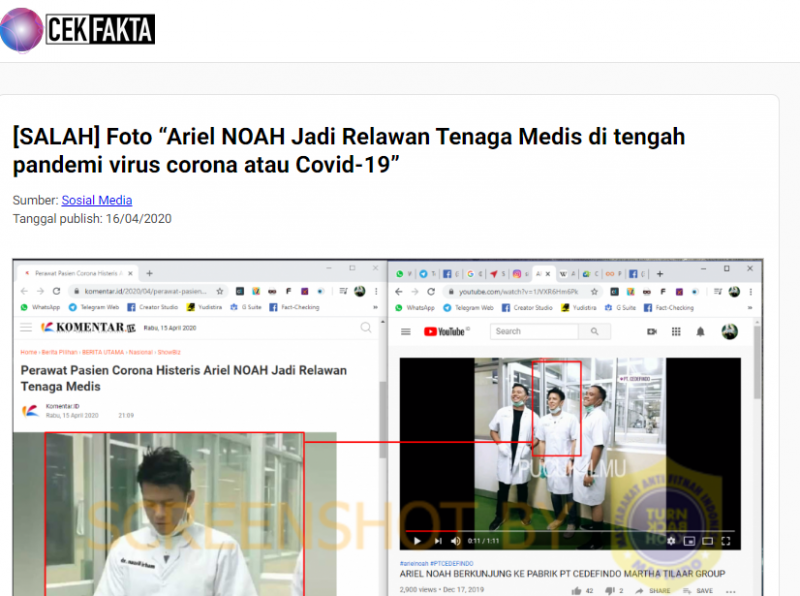This article by Sara Pacia is from EngageMedia, a non-profit media, technology and culture organization. This is republished on Global Voices as part of a content-sharing agreement.
Check out Global Voices’ special coverage of the global impact of COVID-19.
While governments and health workers worldwide are focused on combatting the COVID-19 pandemic, they are also busy fighting another related pandemic that cuts across all sectors of society: a massive “infodemic” equally as wide-reaching and harmful.
The World Health Organisation (WHO) describes this infodemic as “an over-abundance of information – some accurate and some not – that makes it hard for people to find trustworthy sources and reliable guidance when they need it”.
Verified and timely information is more important than ever – but is also more challenging to come by. The global frontliners in this fight against mis- and disinformation on the coronavirus include:
- International health organisations like WHO, which has a dedicated page for busting COVID- related myths
- Social media platforms which have released a collective statement promising to crack down on questionable content
- Journalists and reporters, who are sharing COVID-19 resources in multiple languages
- The International Fact-Checking Network behind the #CoronaVirusFacts/ #DatosCoronaVirus alliance
- Continent-specific fact-checkers like EU vs Disinfo
- Fake news debunkers such as Tencent for WeChat
- Technologists who are providing fact-checking tools
Similar efforts are taking place in the Asia-Pacific, where region- and country-specific groups are relying on constant, collective fact-checking to combat the infodemic. We want to highlight some of them in this post.
In the Philippines, for example, journalists are sharing their best practices on how to accurately report on the pandemic. Internews also funded a 3-part video series on how Philippine fact-checking organization VERA Files is combatting the COVID-19 infodemic. For example, this video debunks inaccurate claims about bats and a false report about an alleged positive coronavirus case in a Philippine province. Another video explains how to protect ourselves from COVID-19.
A similar Internews project is present in India, where partners are continuously conducting fact checks on rumors related to COVID-19.
In Malaysia, there is ample misinformation being shared online – such as one viral video claiming that coronavirus would make people behave like zombies. Malaysian media organization The Star regularly debunks such false information on the pandemic.
In Indonesia, CekFakta is also at the forefront of debunking false information on the virus, including myths that drinking garlic boiled in water can cure you. The collective fact-checking and verification project is in collaboration with the Indonesian Cyber Media Association, the Indonesian Anti-Slander Society, and the Alliance of Independent Journalists.
In Taiwan, Taiwan Fact-Check Center has a dedicated project for COVID-related mis- and dis-information.
In Myanmar, the Ministry of Health and Sports (MOHS) is providing the latest information on COVID-19 on its website to combat countless fake news stories and hoaxes spreading in Myanmar. The MOHS is also raising public awareness through videos on how the medical staff and the general public can stay safe.
The BBC is also teaching citizens in Myanmar how to fight the infodemic through Thangyat or traditional folk music. It is also supporting similar efforts in Indonesia, India, Cambodia, and Nepal.
As this infodemic – arguably the first true social media infodemic of our time – continues with no clear end in sight, more and more initiatives will surely start and grow. It is up to us to stay informed and do our part to sustain these initiatives, else we ultimately lose in the broader fight against disinformation.











1 comment
The infodemic is not just on social media. In Oz we often have to wait 20+ minutes into national TV news before they cover a non-COVID story. Even on Global Voices whose coverage has been without peer, other topics have been crowded out. The environment and human rights are just two of these. The Pacific islands and the Great Barrier Reef can’t wait.